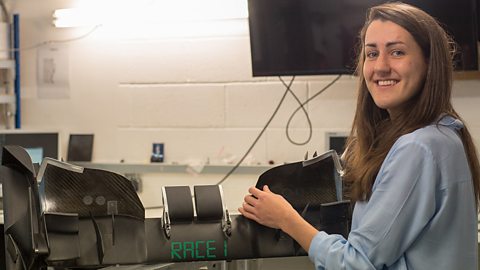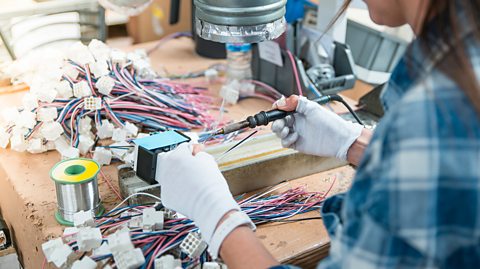Meet Jade, 20, from Norfolk. Find out about her job as a trainee substation engineer at National Grid. Part of our Bitesize world of work series.
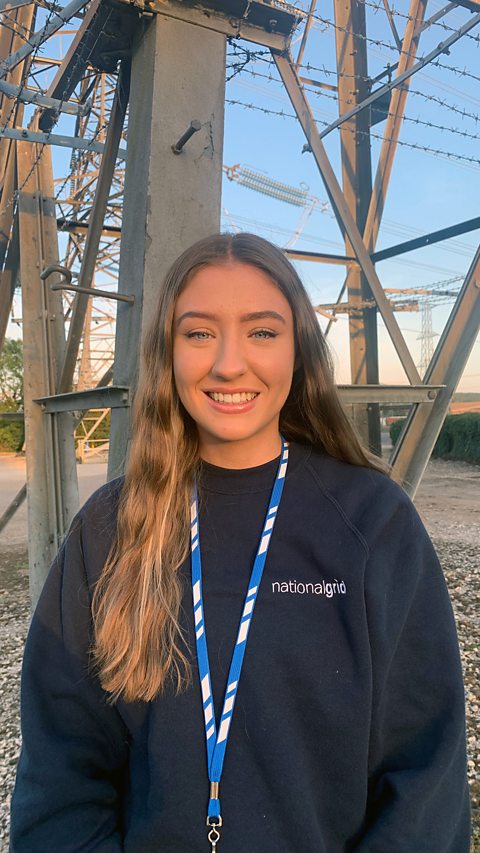
How would you describe your job?
I am doing a Level 4 higher apprenticeship, training to become a substation engineer. My role involves working on substation equipment. I also have to ensure the safety of staff, contractors and the public.
Substations facilitate the connection of green energy to the network. Renewable energy can be quite variable in nature ŌĆō when thereŌĆÖs no sun you are not generating any solar, when there is no wind you are not generating any wind energy. This can lead to variations in voltage levels and power flow. It is the substations that help smooth these peaks and troughs and ultimately facilitate the green energy flow.
What do you do day to day?
There are three main areas I work in. I work on site [at the substation], which is hands-on and practical. I also have time at my employerŌĆÖs own training facility in Nottingham. We do various courses ŌĆō some are practical and some are theory-based. And I am also studying a Foundation degree in Electrical Power Engineering at university. My apprenticeship is three years long.

I always knew I wanted to get into engineering and I am also passionate about the environment and climate change.
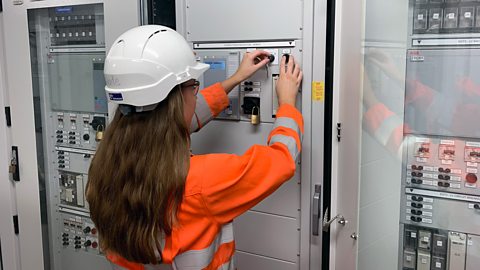
What do you love most about your job?
I always knew I wanted to get into engineering and I am also passionate about the environment and climate change. With this role I can combine my love for engineering with my passion for the environment. It is a nice combination of the two.
My employer actively supports diversity, so I feel they are a supportive company to work with. There are also not many women in the industry, so I am happy to play a role in getting more women into engineering.
How did you get your apprenticeship?
I joined my apprenticeship after my A-levels. Some people have joined our apprenticeship from different careers. You can join at any age.
I found my apprenticeship through the government website. The application process involved an online quiz, to see what personality type you are and what things you are interested in, a telephone and an in-person interview (virtual during COVID restrictions) and finally I had to complete a task and give a presentation on it.
What qualifications did you need?
I needed two A-levels or equivalent in either Maths or Physics at grade C or above. I did Art, Biology and Physics A-levels ŌĆō the Physics meant I could do the apprenticeship.
I liked science at school. It was when I was doing A-level Physics and studying electricity modules that I realised that was what I wanted to get into.
You can also apply if you have a BTEC National Certificate or Diploma Level 3, or ONC, in Electrical & Electronic Engineering or Engineering, or an HNC/HND in Electrical, Electronic or Mechanical Engineering.

I spent a lot of time deciding if I wanted to go to university or do an apprenticeship. It was a big decision to make.ŌĆØ
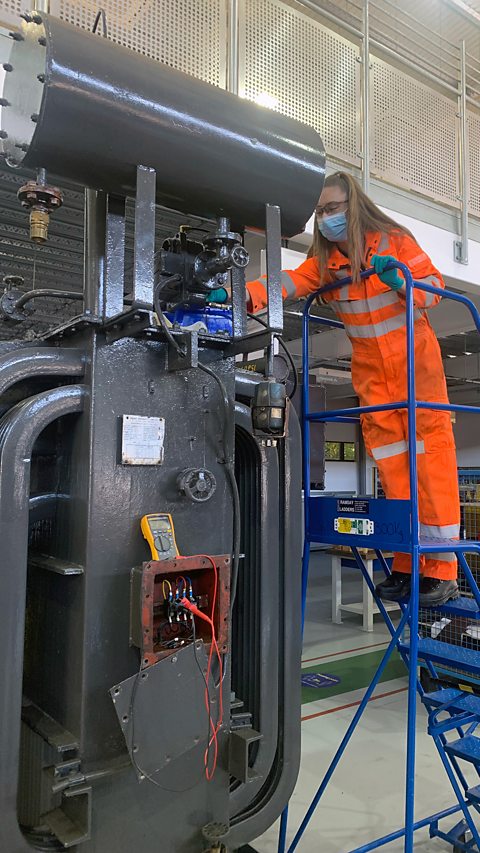
What skills do you use in your job?
I use practical skills on site, and other skills like communication. Often a project will have a large group working together, so you need to be able to communicate to ensure everyoneŌĆÖs safety and that the job is done properly.
You are also quite busy as an apprentice, so you need to be good at time management to stay on top of university and your courses.
How do you feel about doing an apprenticeship instead of going to university?
I spent a lot of time deciding if I wanted to do university or an apprenticeship. It was a big decision to make. I get to earn a competitive salary and I am gaining a degree and qualifications out of it. I am completely debt-free and gaining valuable practical experience. Sometimes, just doing a university course, you miss out on the practical side of things and seeing what it is like to work in the industry.
I donŌĆÖt miss out on the social side of things either. I am part of a cohort [of apprentices]. There is a social element within our group and there are also completely different apprentices in the training centre, so in the evenings we find out what other people are up to.
What skills do you need for the job?
For the programme IŌĆÖm on, you need hands-on practical skills and also a lot of problem-solving skills. A big part of my job involves finding issues, investigating and looking at different solutions and fixes.
Have there been any challenges on your apprenticeship programme?
I think it can be a bit daunting to work at different sites around the country, juggling the work with studying and meeting so many new people, many of whom have been working in this field for a long time and have so much experience. ThereŌĆÖs a lot of learning and being self-motivated is really important. The best thing to do is be yourself, get stuck in and ask questions.


Top tips for getting into engineering
DonŌĆÖt shy away from exploring the different options available. People think engineering is only hands-on and practical. There are all sorts of different routes into the energy sector ŌĆō you can be more office-based or more practical. There is an apprenticeship in the energy sector for everyone. Explore what option is best for you.

When Jade completes her apprenticeship and Foundation degree she will be an electrical power engineer. This is similar to electrical engineers, who design, build and maintain electrical systems, machinery and equipment.
What to expect if you want to be an electrical engineer
- Electrical engineer average salary: ┬Ż22,000 to ┬Ż60,000 per year
- Electrical engineer typical working hours: 35 to 40 hours per week. You could also work on occasional evenings.
What qualifications do you need to be an electrical engineer?
You could get into this role via a university course, a college course, an apprenticeship, working towards this role or applying directly
This information is a guide and is constantly changing. Please check the website for the latest information and all the qualifications needed. (sources: LMI for All, National Careers Service)
For careers advice in all parts of the UK visit: , , and

